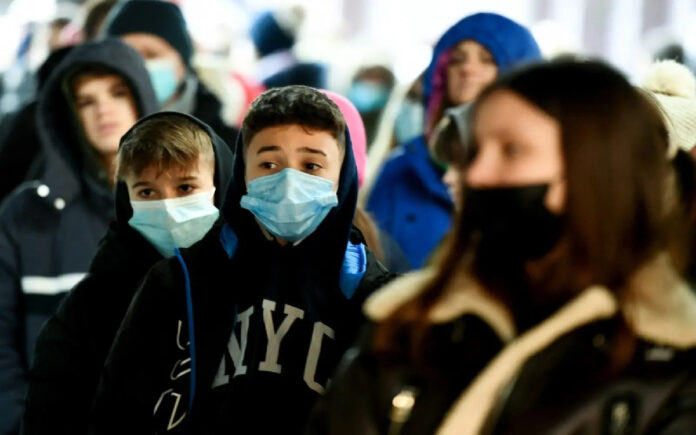London: European nations are grappling with a surge in whooping cough cases throughout 2023 and the initial quarter of 2024, marking a tenfold increase compared to the preceding two years. According to the European Centre for Disease Prevention and Control (ECDC), nearly 60,000 cases have been reported by European Union and European Economic Area countries during this period, resulting in 11 infant deaths and eight fatalities among older adults.
Whooping cough, medically known as pertussis, is a bacterial infection affecting the lungs and airways, endemic in Europe, and poses a significant risk to young infants and elderly individuals.
The ECDC highlighted that larger pertussis epidemics occur every 3-5 years, even in nations with high vaccination rates. However, the slight decline in immunization during the COVID-19 pandemic may have contributed to the upsurge. The pandemic and its associated movement restrictions led to a diminished circulation of whooping cough, amplifying the perceived increase.
Also Read | Pakistan’s Economic Strategy: Banking on Cannabis Legalization
Despite these factors, the current numbers remain alarmingly high. The first quarter of 2024 alone has witnessed as many cases as the average annual count between 2012 and 2019. The agency attributed this surge partly to a lack of natural immunity boost, as a significant portion of the population remained unexposed to pertussis during the pandemic.
Infants below six months old are especially vulnerable to pertussis infection, emphasizing the critical need for preventive measures. ECDC Director Andrea Ammon emphasized the importance of vaccination, stating, “It’s essential to remember the lives at stake, especially our little ones. Vaccines against pertussis have proven to be safe and effective.”
Most European countries routinely administer pertussis vaccines to children, with many also vaccinating pregnant women to safeguard their infants. The ECDC suggested that some nations may contemplate administering boosters to older children and adults, recognizing the potential decline in immunity over time.



